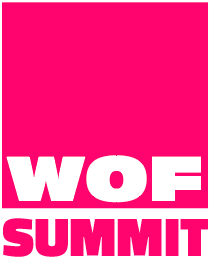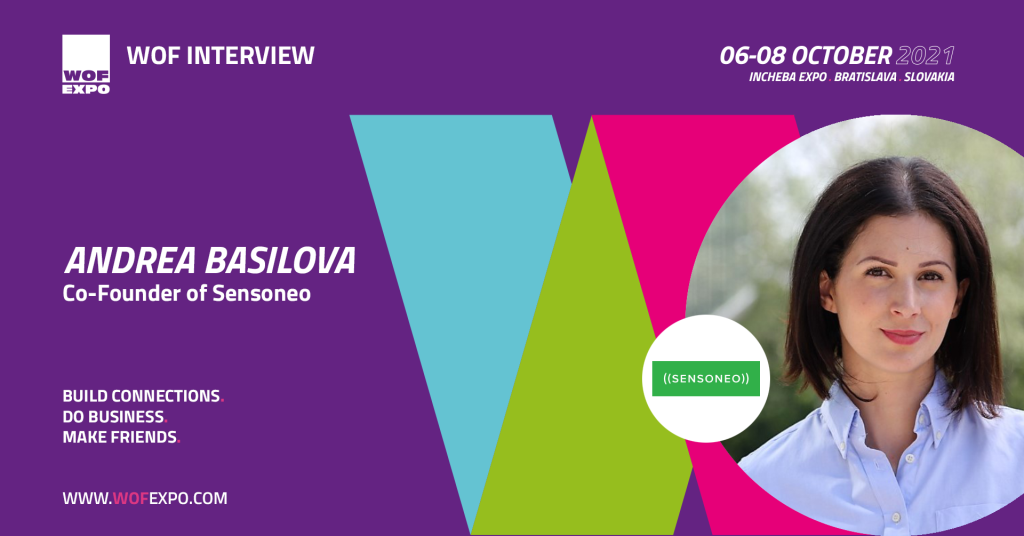Interview with Andrea Basilova
Andrea Basilova is Co-Founder of Sensoneo – a technology company that provides cities and businesses with data-driven waste management. Andrea takes care of Sensoneo’s business development, builds and uncovers new business streams and strategic partnerships. Her goal is to make Sensoneo a strong brand recognized across the global smart waste management market. |
| 1. Please, tell us how does Sensoneo improve the environment and well-being of people? What are the real game-changers when it comes to the solutions Sensoneo brings to the market? Lack of efficiency and transparency are the biggest challenges of the current waste management industry. The volume of waste produced keeps increasing every year – the World bank even expects a rise of waste generated in urban areas by 70% by 2050). Combined with growing population and urbanism, managing waste becomes a challenge for operation, the economy, and the environment. Sensoneo’s focus is nothing but innovative waste management technologies. We design, develop and produce sophisticated hardware, software, and analytical tools. Our customers are hence provided with digital transformation and data-driven decision-making, which results in transparent waste streams, optimization of waste collection routes, frequencies, and vehicle loads, and the introduction of incentive programs dedicated to decreasing waste production. On average, we enable our customers to achieve 30 – 63% reduction of waste collection’s CO2 emissions and 97% accuracy on actual waste production. 2. New legislation prohibits landfilling of municipal waste without prior treatment. Municipalities need to increase the sorting of municipal waste. By 2035, Europe should meet its targets for the circular economy and recycle 65 percent of waste. What are the waste management options for cities and businesses? Accurate data is the key. Without it, it is extremely hard to establish a model or a system that would motivate citizens and businesses to produce less waste and recycle more. Along with the need to evaluate and reset the current waste management system to meet all the legislative requirements and get in line with the circular economy principles as much as possible, it is also important to engage and motivate citizens (or employees). They play a crucial role in this process and they are very much likely to support ideas that are properly explained to them. That is why we consider appropriate communication campaigns and easy-to-run PAYT models as the fundamental tools to achieve the ambitious EU targets. 3. Sensoneo has a global reach – 56 countries altogether. What are some of the interesting partnerships you have created and the latest projects you have worked on? We have managed to build very interesting partnerships – a big part of them is made of IoT operators and system integrators (including T-Mobile USA, Vodafone, Deutsche Telekom, CRA…), but we have also managed to partner with companies that are well established in the world of waste management (FCC, Recircula…) and the organizations that drive implementation of smart technologies into city operations – like ICT Operator in Prague. The deployment in Prague which includes monitoring of 460 underground bins and optimizes their waste collection logistics, has been very well received, it received the award of Best Smart City deployment of 2019 in the Czech republic. Currently, we are working on several large-scale deployments in different regions – in the Nordics, Western Europe, and the USA. I would also like to mention the deployments we do in Prague and Bratislava – both of them are supported with the EIC Accelerator grant by the European Innovation Council and these are very unique and first-of-its-kind projects. 4. Thanks to the remarkably innovative Internet of Things (IoT) solutions, many smart cities are already being created, and pollution can be reduced. Can you tell us your views on IoT and what it actually does? IoT represents a great opportunity to drive smart solutions that enable the tracking and optimization of equipment in different industries, leading to improved health and safety, reduced costs, and improved efficiency. This technology has some remarkable benefits such a low power usage, long battery life, and low device cost. However, we have to keep in mind that IoT is in the role of “driver or enhancer” and there always has to be a great use case behind, to make the connection of several devices/or things worth for the daily operations. 5. What are the futurological Sensoneo visions of waste management development and a sustainable future? There are challenges that could be (and certainly will be) solved with technology, however, some of the challenges require a “system change” to make a real impact. At Sensoneo, we fully focus on technology innovations – we plan to test different new solutions and tools that would support cities and businesses on their transition toward the circular economy and would help them to efficiently use the resources. This includes tools for “pay-as-you-sort”, fully automatic PAYT models and tools supporting PAYT introduction in the areas of apartment blocks. 6. What is your opinion about positioning WOF EXPO in the Central and Eastern Europe region? We are happy to see the growing ecosystem of technology companies and R&D-oriented startups in our region. There is a lot happening now and we are glad this is reflecting in the positioning of the WOF EXPO. We are looking forward to get to know inspiring companies and speakers. |
 | Sensoneo is a global enterprise-grade smart waste management solutions provider that enables cities and businesses to manage their waste efficiently, lower their environmental footprint and improve the quality of services. Through its unique smart waste management technology, Sensoneo is redefining the way waste is managed. The solution combines in-house produced Smart Sensors that monitor waste in real-time with advanced tracking equipment and sophisticated software providing cities and businesses with digital transformation, automation of critical daily operations and data-driven decision making which results in transparent waste streams, optimization of waste collection routes, frequencies, and vehicle loads, and the ability to easily introduce incentive programs motivating for less waste production. Sensoneo smart waste management has attracted cities and businesses around the world and the solution is installed in numerous locations across Europe, North America, South America, Middle East, Australia and New Zealand.
www.sensoneo.com |

